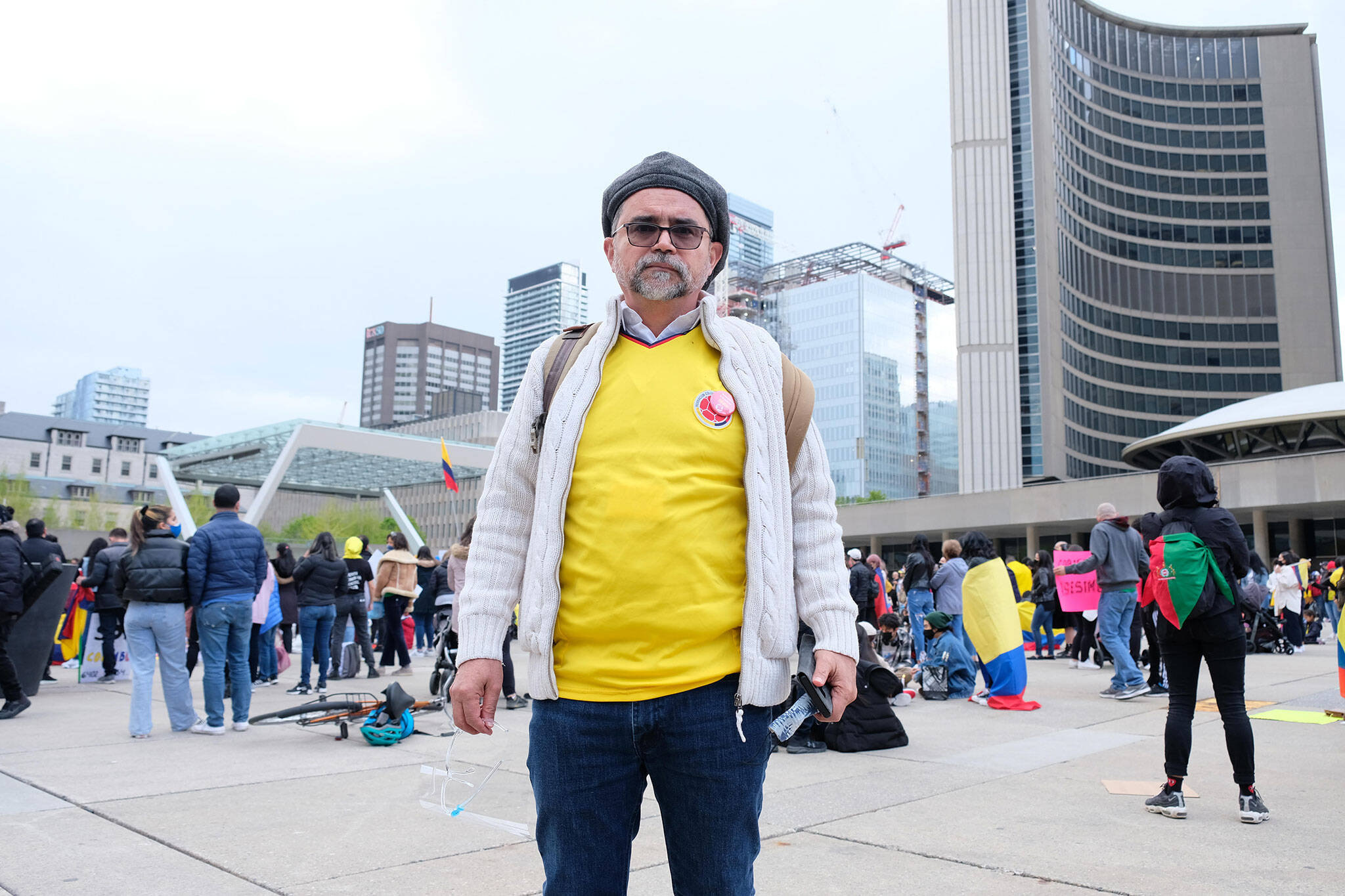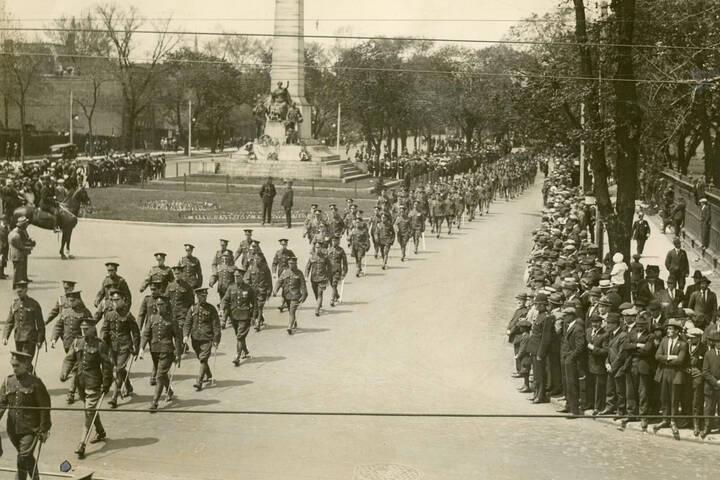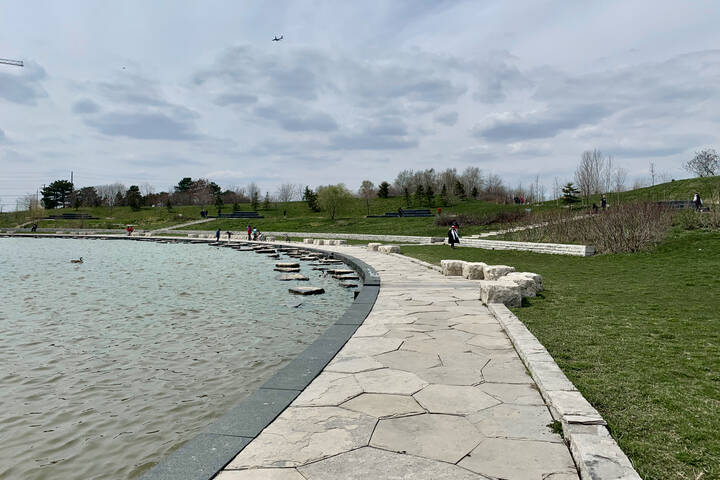
Colombia protests arrive in Toronto as the calls for justice go global
"Nos están matando." They are killing us.
A slogan adorned on posters and flags in protests across Colombia—and now, around the world. In Toronto, hundreds of Colombians gathered in Nathan Phillips Square on Saturday evening to stand in solidarity with protesters at home.
Following the news while thousands of miles away, Maria Varon says she hurts for her country.
"It's a huge pain that I really can’t describe," says Varon. "I’m sure I speak for everyone when I say the pain that we feel being here when we know...people are being killed [back home]... we feel that pain, and that's why we want to show our support."
On April 28th, mass protests erupted across major cities in Colombia in response to a proposed tax reform intended to address pandemic-related debt.
Desde Toronto/Canada 🇨🇦 apoyando a mi país!!! No nos rendimos, seguimos gritándole al mundo que en Colombia nos están Matando. #SOSColombia #HoyPorLaVida #ParoNacional8M #ColombiaAlertaRoja #ColombiaBajoAmenaza pic.twitter.com/JqhbQzSlf4
— Anyelo Alandete (@AngeloAlandete) May 9, 2021
While President Ivan Duque insisted the reforms were necessary to support social programs, many felt the proposed reforms favoured the wealthy while putting an increased financial burden on the middle class.
Though President Duque walked back on the proposed reforms four days later, the protests continued.
@Canada @Toronto @colombia @archivacolombia from toronto desde toronto we #ProtestaSocial #protestascolombia they are killing us @UN_Women @UN_News_Centre @UN pic.twitter.com/TDqFfiJnsA
— Daniela Gaitan (@DANIELA_LEON95) May 8, 2021
"People are still protesting even though that tax reform is done because people are still getting killed...And it goes deeper than that—it's the corruption," says Varon. "People are tired of being abused."
"Protesting is a right that everyone has in every country," she says. "We are here because we want to show our support to the people in Colombia putting their lives at risk."
#SOSColombiaEnDictadura #SOSColombiaDDDHH #soscolombia Desde TORONTO te apoyamos COLOMBIA! pic.twitter.com/C7TZT3o2OY
— e (@estxven) May 8, 2021
According to the Obudsman Office of Colombia and the Office of the Attorney General, 26 people have died in the protests and 145 people have been presumed missing, although prominent NGOs like Temblores ONG claim these numbers are actually much higher.
In a post on May 7th, Temblores claimed there are now allegedly 39 dead, 1814 cases of police brutality, 963 arbitrary arrests, and 12 victims of sexual assault.
"We don’t understand why the youth and the protesters in Colombia are attacked with such violence by the police," says Luis Alberto Mata, a refugee and survivor of the genocide against the Unión Patriótica.
"[Our] call is to stop the violence and... to listen to the call for justice, listen to the call for human rights and to stop the killings in Colombia."
Thousands of people in Toronto standing against the atrocities unfolding in Colombia.
— Pablo Muñoz (@diasporasour) May 8, 2021
My heart is with my Colombian people. #FuerzaCOLOMBIA #SOSColombia pic.twitter.com/xEVNUtnRQN
The call for help does not stop in Toronto. Around the world, people are taking to the streets in solidarity with protesters in Colombia and calling international attention to the government’s heavy-handed response.
In the past week, rallies and vigils have been held in several major cities like New York, Barcelona and Paris.
"One way to support is to help spread the word," says Varon. "When something happens in North America—the whole world knows about it. Everyone posts something on their social media...I haven’t seen anything here [on social media] about the situation in Colombia. We need help to spread the word. We need people to share."
Kathleen Munro
Latest Videos
Latest Videos
Join the conversation Load comments







